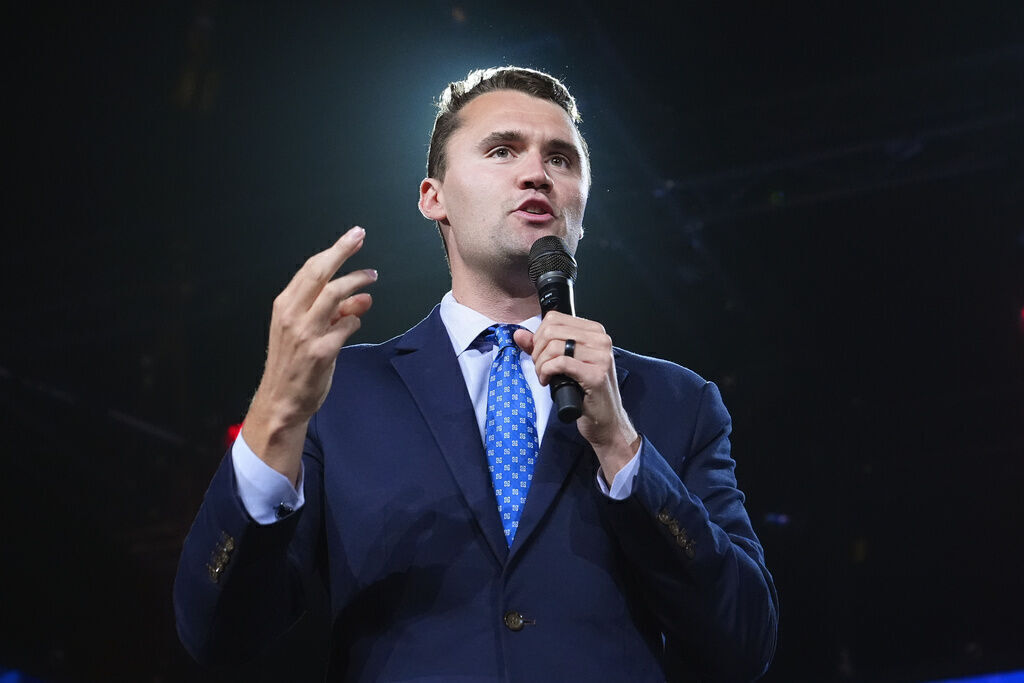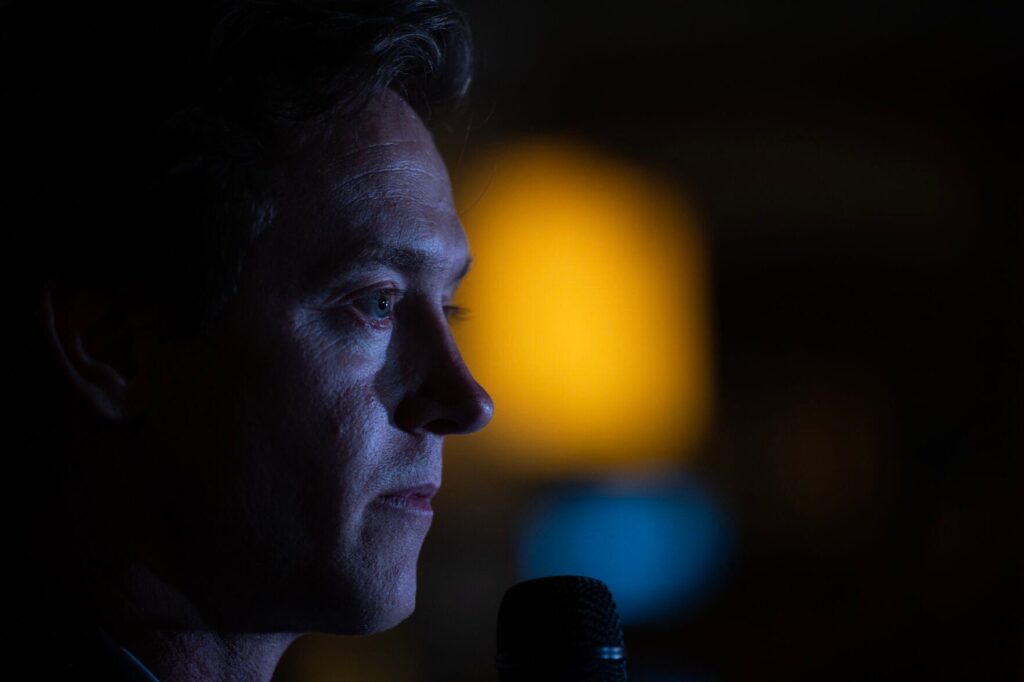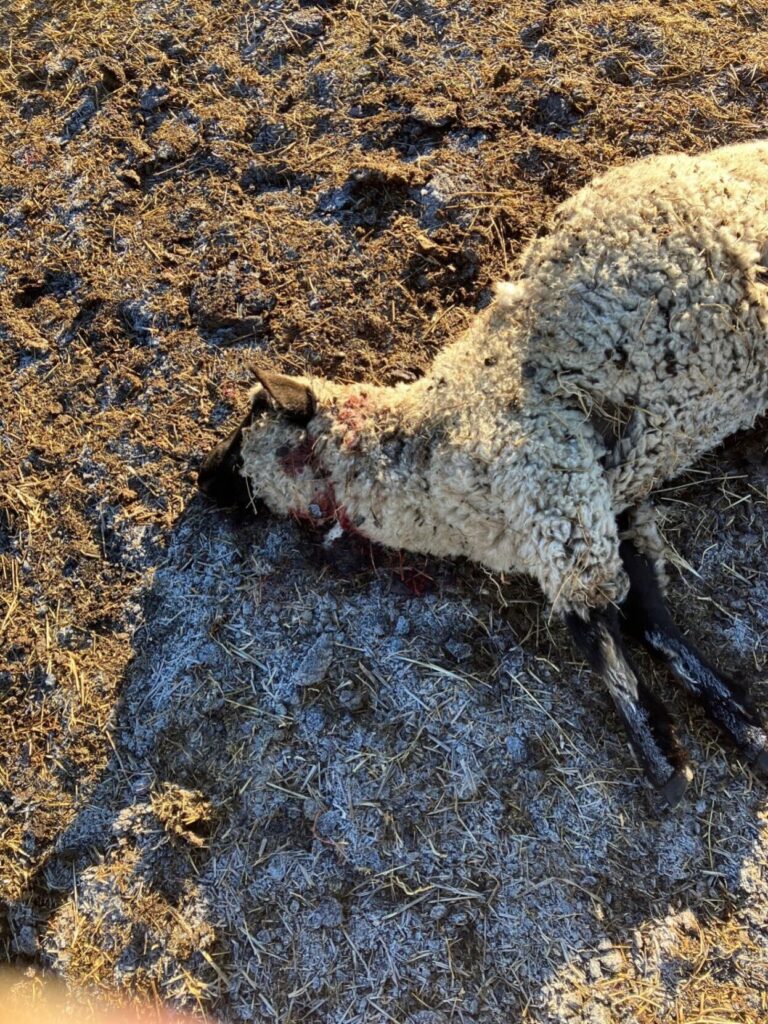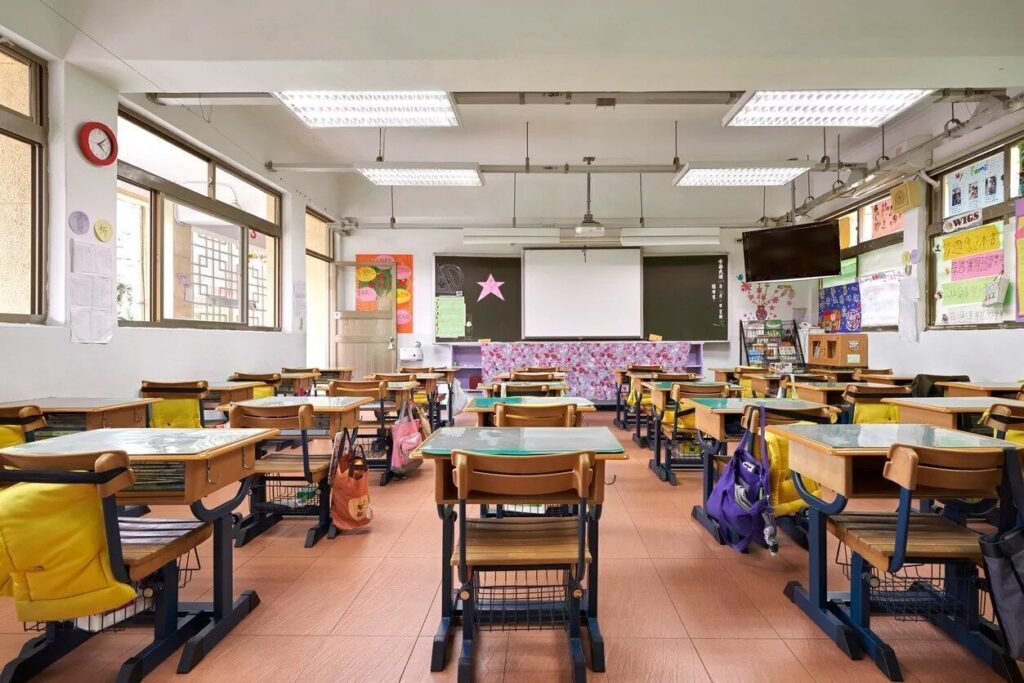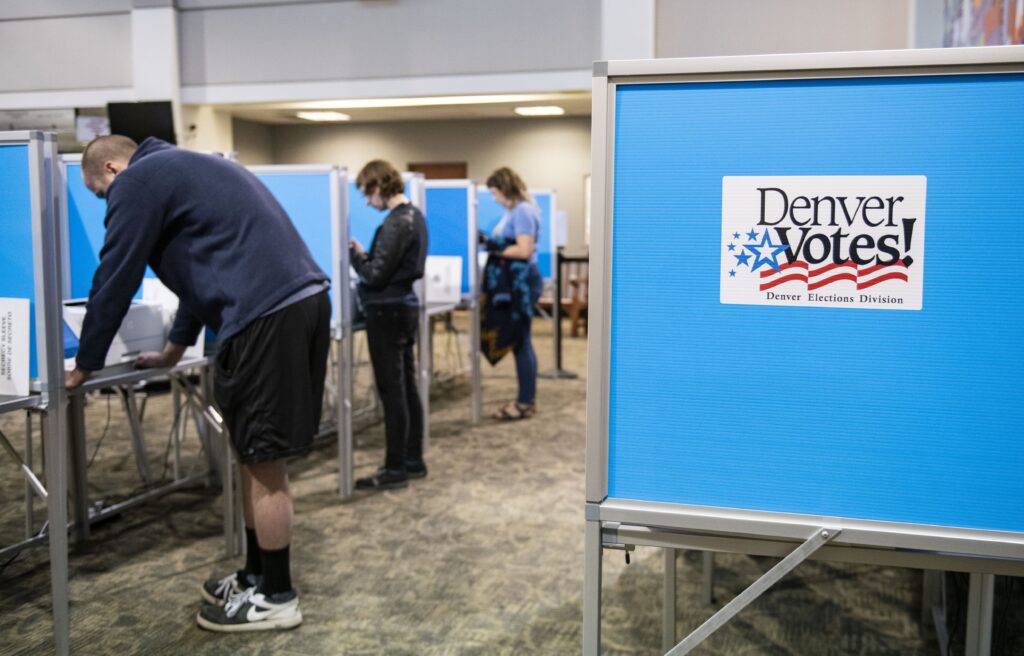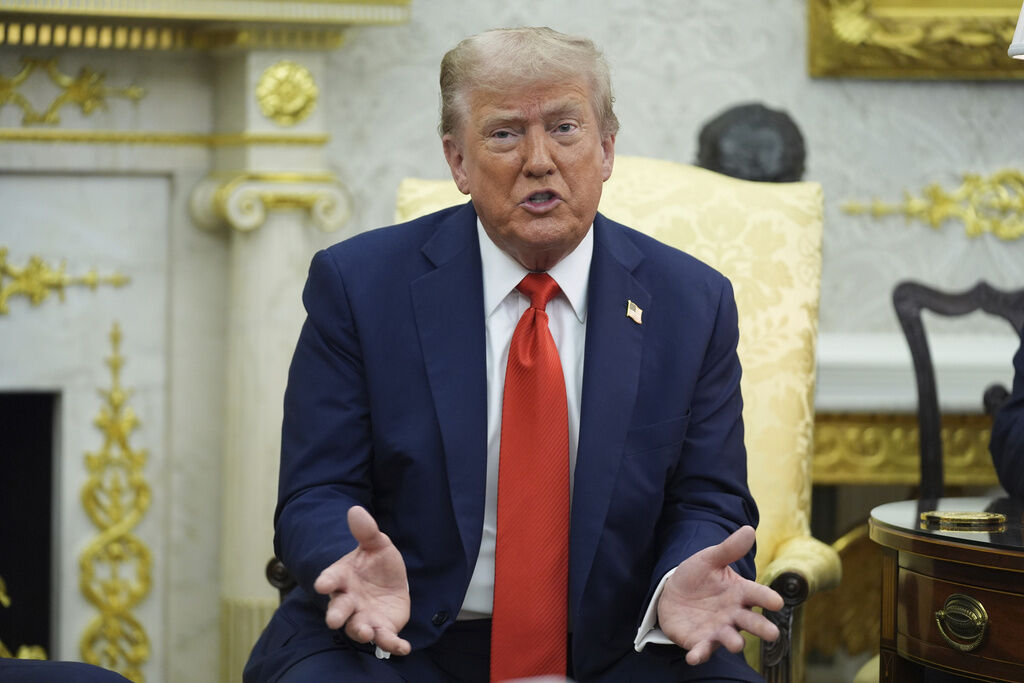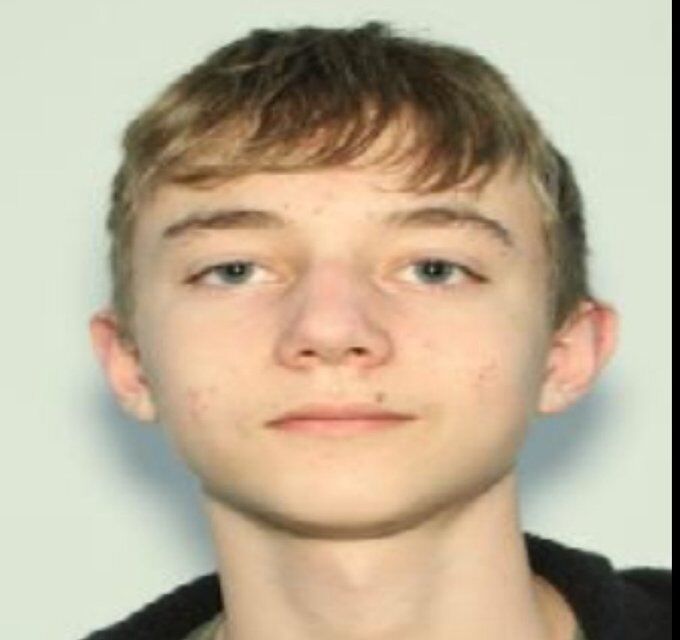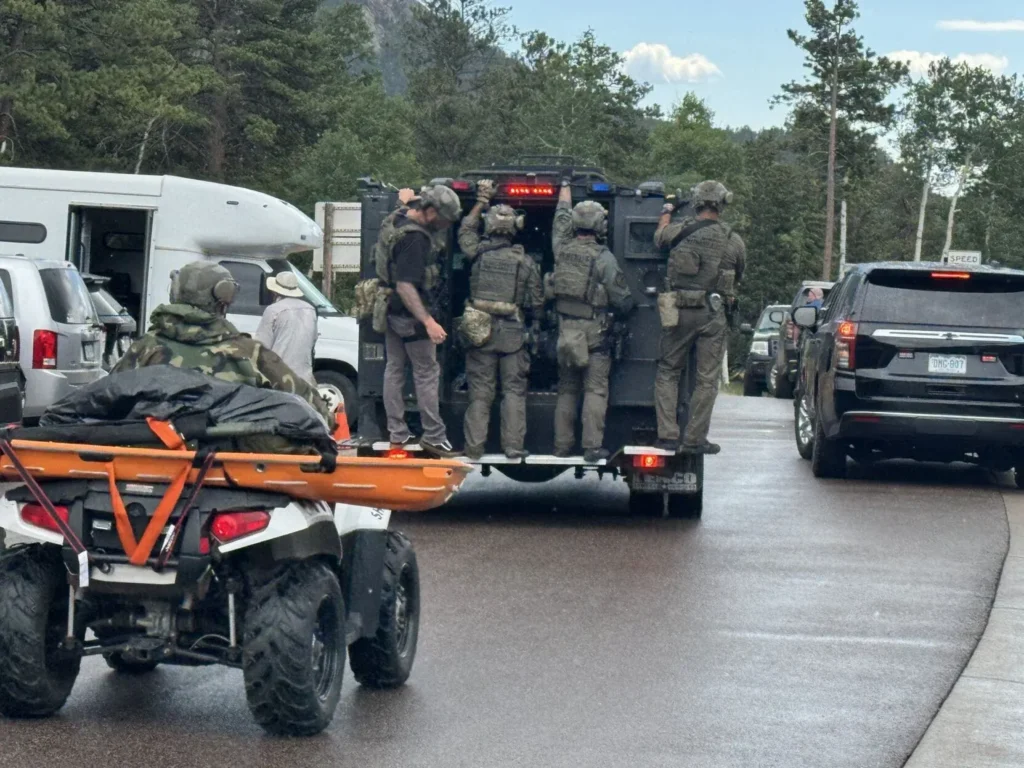Former FBI director Mueller warns of ongoing terrorism threat, plays down threats to privacy
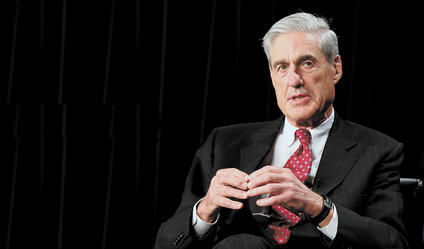
Former FBI Director Robert Mueller minced no words Tuesday in a two-hour public interview with television talk show host Aaron Harber about the ongoing threat of terrorist attack he said shadows the United States. He also attempted to allay concerns about national security state overreach that could trample the privacy rights of American citizens.
Mueller told the audience of mostly students, politicians and law-enforcement representatives that filled a 500-seat conference room at the downtown Marriott Denver that his experience as the second-longest serving head of the FBI — after director-for-life J. Edgar Hoover — taught him that the country’s intelligence organizations overwhelmingly were staffed with personnel who knew that integrity was crucial to maintaining the public trust essential to the work.
“The balance between privacy and national security is something we knew we would have to work at every day,” he said.
“We get thousands of applications every year. But the average age of new agents is 30 years old. That’s because the most important qualities we look for are judgment and maturity. Americans are giving great power to the agency to affect people’s lives.
“We take new recruits to the Holocaust Museum on the Mall in Washington to demonstrate the power and responsibility have as agents of the government.”
Mueller said that the checks and balances safeguarding against abuse have worked well, although they have been subject to criticism in the media and on Capitol Hill. He defended the Foreign Intelligence Surveillance, or FISA, court, which is closed to the public and has been called unjustifiably “secret” and written off by critics as a rubber-stamp factory serving the homeland security industry.
“We are the only country where [government intelligence agencies] have to go through a court at all,” he said. “The third branch of government is a pretty good guardian.”
Even among critics, Mueller enjoys heightened credibility.
He came into the job the week of 9/11 and he learned fast he would have to remake the organization. He told the audience he briefed President George W. Bush and started listing off the investigation he was running, the progress he was making identifying the men and the terrorist networks behind the attacks.
“He said, ‘That’s fine. I expect that, but I want to know what you’re doing to prevent the next attack?’”
Mueller said he was flummoxed. He said he knew then that the investigative and prosecutorial work the agency was famous for doing would have to take a backseat to the more vague work of preventative counterterrorism.
Mueller also earned vast stores of goodwill among national security skeptics for his role opposing the effort by Bush cabinet members in 2004 to pressure the hospitalized Attorney General John Ashcroft to reauthorize a domestic surveillance program the Justice Department had deemed illegal. Mueller, along with Ashcroft, Deputy Attorney General James Comey and their staff threatened to resign, leading Bush to pull back on the plan and rework the surveillance program.
The audience seemed persuaded by Mueller. Cyber security hacks and breaches make news at a regular clip. The information leaked by national security contractor Edward Snowden have generated a cottage industry of news programs, newspaper series, bestselling books and movies and spurred protests at forums like the one hosted by Harber Tuesday. But there was none of that, not even many tough questions, which seemed odd, especially given that Harber had marketed the night as a “special civic engagement forum” and as a “no-holds-barred” opportunity to ask Mueller questions on any subject. And Harber was good to his word, keeping the former director on stage for two hours and the microphone open until the last person lined up behind it had asked his question.
It might have seemed odd that the students in attendance seemed as taken with Mueller as the adults.
At a forum on national security the week before in Denver, MSNBC “Hardball” host Chris Matthews said he thought it was young people who were most concerned with unconstitutional government snooping.
“It’s millennials,” he said. “They’re very privacy-conscious, like my kids. But, you know, millennials, they don’t have houses or cars. Their phones are their homes. It makes sense they’re concerned. My email is boring. Who would read my email? I don’t care.”
Matthews said that our relation to our digital lives might influence whether we see Snowden as a leaker or whistleblower, hero or a traitor for turning over vast information on government spying programs to journalists for publication. Matthews seemed unsure on the question. Mueller was not.
“[Snowden] has done institutional damage to our capabilities when it comes to preventing terrorist attacks,” Mueller said.
He said the government was only collecting metadata, although he gave an example that demonstrated how valuable and how revealing that metadata can be.
He recalled the moment agents informed him they had identified the Boston Marathon bombers in 2013.
“My greatest concern at that moment was: Will there be another attack? So I wanted to know who did [the bombers] talk to? Are there others who might be planning a subsequent attack?
“Their phone records were readily available. We could see that. Do we want to lose that capability?”
Near the end of the event, a high school student from Pueblo asked what Mueller thought was the greatest threat facing the country. Mueller didn’t hesitate. He said the Islamic State operating in the Middle East.
There is the domestic threat, but there is the “more immediate threat posed to Americans overseas,” he said, conjuring images of kidnappings and the videos of beheadings in the desert that have gripped cable news watchers for years.
Another questioner asked about the alleged threat posed by immigrants crossing the southern border of the United States — the “killers and rapists” Republican presidential frontrunner Donald Trump famously lamented Mexico is ushering into the country.
“Um, hmm, no comment on that one,” Mueller said.
It was the only substantive question Mueller took a pass on answering the entire night. (He also punted when asked what actor he would choose to play him in the movie version of his life.)
The last question also came from a student.
Can humans can learn to live in peace with one another within the next 500 years, absent an alien invasion? the student said, roughly, only with more words and pauses between the words.
Harber repeated the question out loud, sort of translating for the director.
Mueller barely grinned. “No,” he said, and didn’t elaborate.






